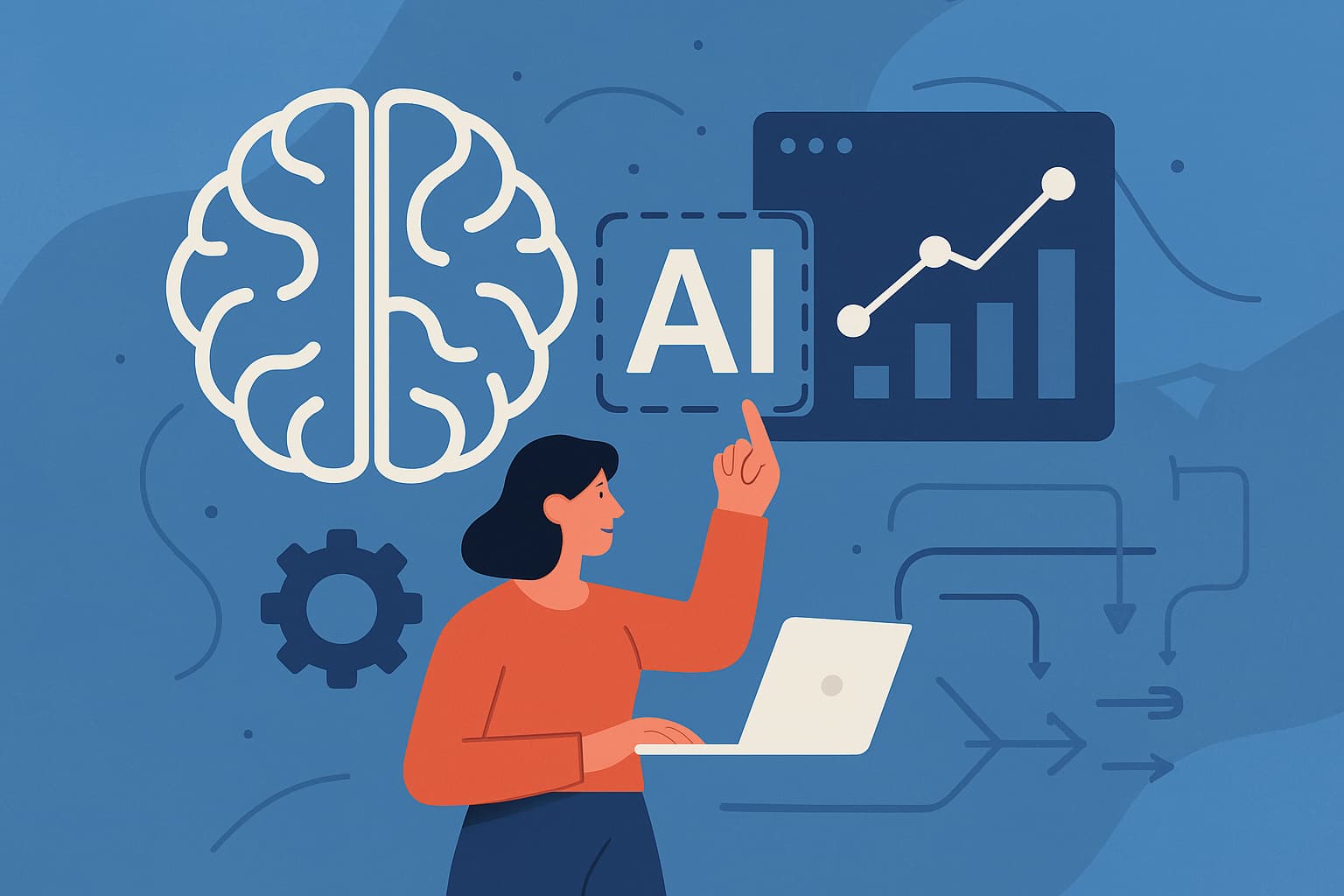AI adoption reaches 78% globally, but 65% of initiatives fail without strong leadership. Expert insights on hiring AI executives who drive transformation success.
The numbers are staggering: 78% of global companies now use AI in their daily operations, and the AI market is projected to reach $1.85 trillion by 2030. Yet here’s the paradox keeping C-suite executives awake at night — 65% of AI initiatives fail to meet expectations, and it’s not because of the technology.
The culprit? A critical leadership gap that’s widening by the quarter.
The Business Case for AI is Undeniable
Organizations across industries are embracing AI not as a luxury, but as a survival imperative. 92% of companies plan to increase their AI investment over the next three years, driven by tangible results: AI saves employees 2.5 hours per day on average, while 28% of business leaders report using AI to cut company costs.
The transformation spans every sector. Financial services firms deploy AI for fraud detection and risk assessment. Healthcare organizations leverage machine learning for diagnostic accuracy. Manufacturing companies optimize supply chains through predictive analytics. Even traditional industries are finding competitive advantages through AI-powered customer insights and operational efficiency.
But here’s what the statistics don’t reveal: companies with strong AI-focused change leadership see 3.2x higher profit margins, while those using traditional change management approaches face a 42% failure rate. The difference isn’t in the technology stack — it’s in the leadership approach.
The Leadership Gap That’s Killing AI Success
73% of AI transformations fail at the CEO level, and the pattern is predictably devastating. Organizations announce AI initiatives with fanfare, invest millions in enterprise platforms, hire armies of consultants, then wonder why nothing changes.
The failure cascade follows a familiar trajectory: Leadership delegates AI strategy to IT departments that focus on technology deployment rather than business outcomes. AI projects become cost centers instead of profit drivers. Without executive ownership, strategic direction gets lost in technical complexity.
Meanwhile, 71% of employees express concern about AI adoption, creating resistance that kills implementation before it begins. When leadership fails to address cultural transformation alongside technological change, even the most sophisticated AI tools become expensive digital decorations.
The most successful AI implementations happen when leaders recognize a fundamental truth: AI transformation is culture transformation. It requires leaders who can bridge technology and humanity, strategy and empathy, innovation and trust.
What Makes an Exceptional AI Leader
The executives thriving in AI-driven transformation possess a unique combination of traits that traditional leadership models never anticipated. Emotional intelligence ranks as the defining characteristic, with research showing that 80% of digital transformation success is driven by emotional intelligence, with just 20% attributed to technical intellect.
AI-aware curiosity replaces the need for technical expertise. These leaders don’t need to become data scientists, but they maintain enough understanding to guide strategic decisions and ask the right questions. They develop what industry experts call “AI acumen” — the ability to assess limitations and possibilities while making informed resource allocation decisions.
Principled decision-making becomes paramount when handling sensitive data and ethical considerations. The most effective AI leaders ask “Should we?” alongside “Can we?”, building long-term trust with both employees and customers.
Boundless team activation enables these executives to quickly align diverse stakeholders — from technical teams to business units to external partners — around common AI objectives. They excel at creating momentum without formal authority, a critical skill in cross-functional AI initiatives.
Adaptive imagination allows them to navigate uncertainty while maintaining competitive advantage. As one executive noted: “The winners have moved beyond both technical expertise and standard leadership frameworks. They’ve developed capabilities that let them guide transformation while the rules keep changing”.
How Executive Search Partners Enable AI Success
The challenge isn’t just identifying these rare AI leadership qualities — it’s finding executives who can scale them across entire organizations. 66% of business leaders say they wouldn’t hire someone without AI skills, and 71% would rather hire a less experienced candidate with AI skills than a more experienced candidate without them.
This shift is creating unprecedented demand for specialized executive search expertise to identify candidates with the leadership signatures that drive successful AI transformation.
The most sophisticated search processes now evaluate candidates across multiple dimensions: technical fluency without technical tunnel vision, change leadership capabilities, cultural intelligence, and the emotional resilience required to guide teams through uncertainty.
This is where partnerships with experienced executive search firms become strategic investments rather than operational expenses. The right search partner brings not just access to top-tier talent, but deep understanding of how AI leadership success translates across different industry contexts and organizational cultures.
The Competitive Reality: Act Now or Fall Behind
The statistics paint a stark picture: companies with AI-active senior leaders show 2.3x higher adoption rates, while organizations with cross-functional AI teams are 3.1x more likely to report successful outcomes. Meanwhile, the average cost of failed digital transformation reaches $15 million per project.
The window for competitive advantage is narrowing rapidly. Early adopters of AI change leadership are seeing 34% higher employee retention, 28% higher revenue growth, and 45% faster project completion rates. Organizations that continue treating AI as an IT project rather than a business transformation led by visionary executives risk becoming cautionary tales in tomorrow’s case studies.
Your Strategic Next Step
The question isn’t whether your organization needs AI leadership — it’s whether you can identify and attract the exceptional executives who will determine your AI transformation’s success or failure.
In a landscape where the gap between AI leaders and laggards is becoming a chasm, partnering with executive search specialists who understand both technology trends and leadership psychology becomes a competitive necessity. The right search partner doesn’t just fill positions; they architect leadership teams that turn AI disruption into sustainable advantage.
What role do you see AI leaders playing in your industry? The organizations answering this question strategically — and acting on their conclusions decisively — will be the ones writing the success stories of tomorrow’s AI-powered economy.


